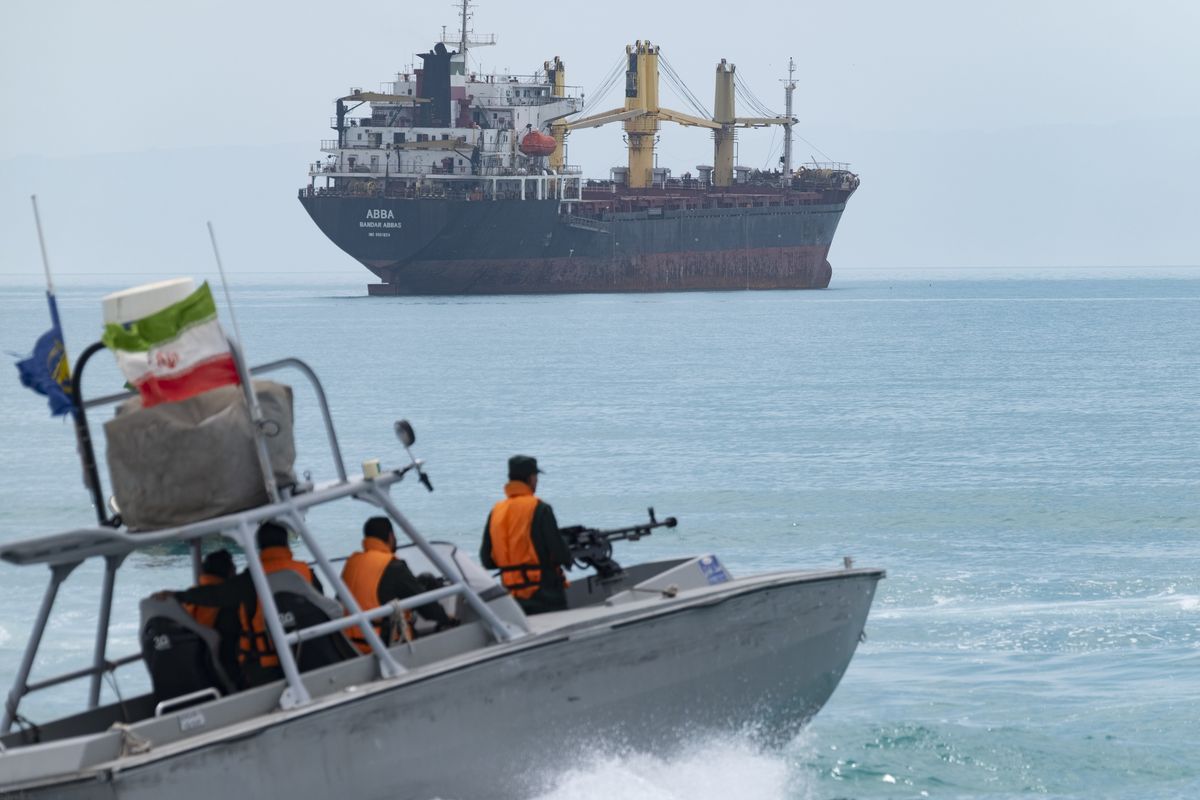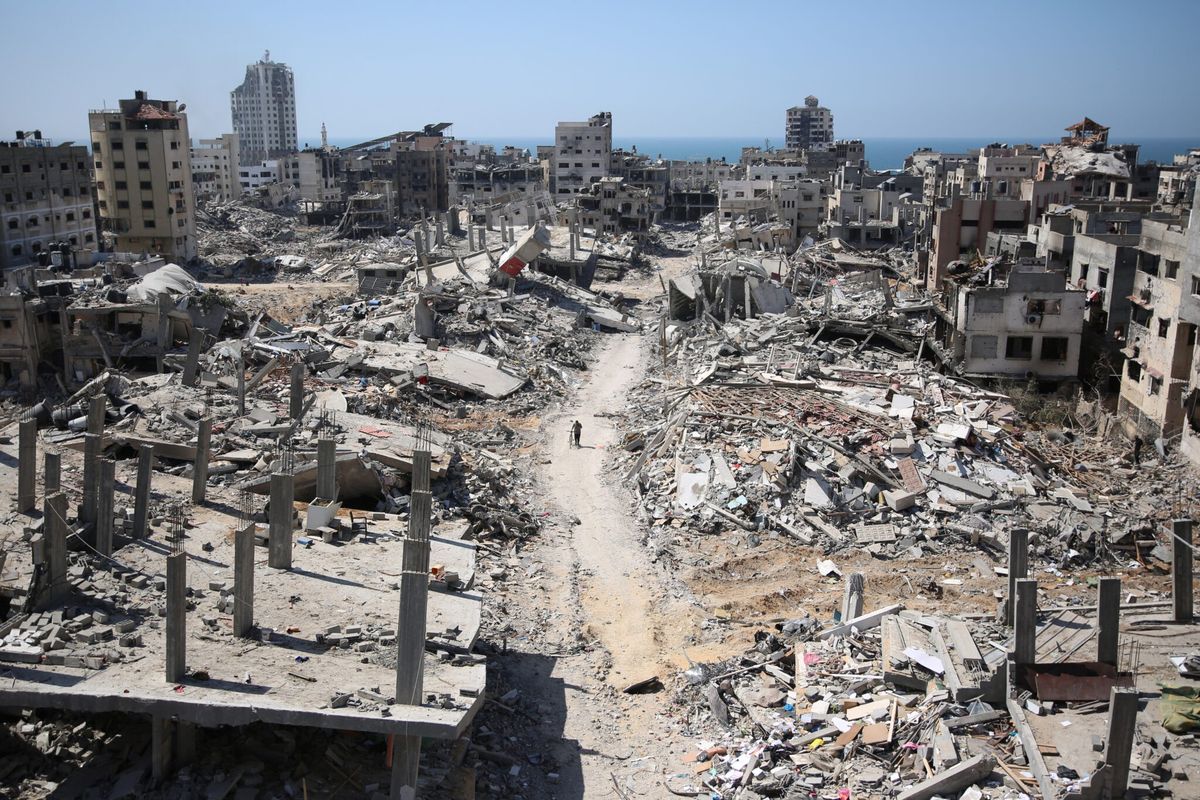The Cipher Brief reached out to network experts retired Amb. James Jeffrey and CIA veterans John Bennett and Emile Nakhleh for their thoughts on the Trump administration’s imminent announcement recognizing Jerusalem as the capital of Israel, despite Palestinian objections that such a move ignores Palestinian claims to East Jerusalem. Among the questions is whether the announcement also would include moving the U.S. embassy from Tel Aviv to Jerusalem or whether President Donald Trump will renew the standard waiver that has long delayed the embassy move.
Ambassador Jeffrey: This is not going to be the “end of days,” as some commentators are arguing, particularly if it’s just an announcement in principle and isn’t followed up by concrete steps. The problem is, the number one issue in the Middle East right now is not Israel and not the Palestinians; it’s Iran on the march.
The coalition against Iran is led by Arab states, the U.S. and Israel, which all have a common interest. But, issues between Israel and the Palestinians – and with Jerusalem it’s more than the Palestinians, it’s all Arabs and all Muslims come to the floor – the harder it is for Arab states to cooperate with Israel and on the margins to cooperate at least formally and officially with the U.S.
Thus, this kind of announcement will undercut, to some degree, our joint effort against Iran, which isn’t going very well anyway, if you look at what has happened with Prime Minister Saad Hariri in Lebanon, former President Ali Abdullah Saleh in Yemen and Kurdish President Masoud Barzani in Iraq, and what has been going on in Syria. We need to play a better game. This won’t help us play a better game.
Jeffrey thought the move would be welcomed in Tehran.
Jeffrey: Iran is seen, after Syria, as such a malignant force in the region, that I don’t think it will gain a whole lot of ground because of this. It’s not so much what Iran will benefit from, it’s what we will lose and what the Israelis will lose—if this leads to some violence or political crisis, it will be a distraction from the most important issue in the region, which is Iran.
The relationship between Israel and the Arab states also would be on ice if the U.S. took a physical step [to move the embassy] and this led to violence. It basically is a domino effect: the U.S. takes action, the Palestinians decide to protest that action, that leads to violent clashes with the Israelis, and the Israelis crack down. It would be the Israeli crackdown that would trigger an Arab withdrawal from diplomacy and secretive relations with Israel.
Another Intifada?
Jeffrey: The Intifada has had several waves. They have been kicked off by incidents in Jerusalem. But typically, they tend to be a deliberate action by the Palestinians to open another front against Israel or to attract more attention in the Arab world when they figure people have forgotten them. But once again, this gives you an opportunity if you want one.
John Bennett reviewed the potential fallout.
Undoubtedly there will be anti-American demonstrations, but how large and for how long? How many Arabs will be truly shocked or believed that the U.S. did not "tilt" towards Israel? Will the Gulf States reimpose their oil embargo? That would matter. I am not sure it would matter if Turkey pulled its embassy from Israel, given the state of their relations. Which would the Israelis value more—the U.S. moving to Jerusalem or Turkey closing its embassy?
The reality is that the 50 years of having the U.S. embassy in Tel Aviv has not advanced nor impeded the peace process. If the U.S. stays in Tel Aviv, will Hamas and Hezbollah stop shooting rockets at Israel? If we move to Jerusalem, is Israel going to stop building settlements? If history has taught us anything, it should be that, whether it is a Democratic or Republican administration with close ties to Israel or a tepid relationship like the last administration, the process only moves when the local players want it to. The location of our embassy has never been the real issue or the real problem.
This move would certainly send a signal to those in the region that the U.S. no longer accepts the status quo in the Middle East. Could our move possibly be an issue that would bring Gulf Sunni Arabs and Iran closer in common cause at a time when Israel seems to be making some inroads with the Gulfies? Possibly, but I suspect Saudi concerns and mistrust of Iran transcend the importance of where we locate our embassy.
Bennett lamented that the U.S. gets no respect.
Finally, it is worth noting from an American perspective how the U.S. has been treated by the Arab world despite trying to facilitate a peace with Israel and the creation of a Palestinian state:
Our deployment of U.S. forces to Lebanon in 1983 to save the Palestinian Liberation Organization (PLO) from the Israelis not only was not appreciated but eventually led to our troops being attacked.
Our humanitarian efforts on behalf of Islamic populations in Somalia and in the Balkans during the 1990's did not prevent al-Qaida from declaring war on the U.S., attacking New York first in 1993, our East African embassies in 1998 and culminating in 9/11. I appreciate that many in the region have been outraged by our invasions of Afghanistan and Iraq, but it was provoked by an attack on the homeland. If they did not anticipate any U.S, reaction, they are living in an alternative reality. I suspect they would have had no doubts about how Israel or, for that matter, Russia would have reacted.
Bennett considered the possibility of a mission to both Israel and the PA … or maybe not.
Perhaps we could ameliorate some of the blowback if the administration were to announce that the embassy will serve as both our mission to Israel and the Palestinian Authority, but I doubt either would accept that. In any case, since this is clearly a move toward Israel that will suggest to many that we are no longer an honest broker, perhaps some other country will step up and take the lead in the "peace process" — Sweden, Switzerland, the Germany that has accepted all these Syrian refugees? Hopefully no Russia or China, but we live in strange times. We ceded to Russia our initial dominant position in Syria.
My bottom line is if this happens at all, it will pass and the much larger conflicts and issues facing the region will return to the fore.
Emile Nakhleh said the announcement could be a gift to extremists and U.S. adversaries.
A decision to recognize Jerusalem as the capital of Israel and move the U.S. Embassy from Tel Aviv to Jerusalem will weaken international law and empower those who believe in the dictum that might makes right.
The fallout would be felt on three different levels: Arab Islamic publics; Arab Islamic regimes; and extremists and terrorists. Muslim publics from Morocco to Indonesia will hit the streets, demonstrating in front of American embassies and consulates and denouncing Trump's unilateral act to change the international legal status of Jerusalem. As they will undoubtedly confront the local security forces guarding American diplomatic and other installations, violence and bloodshed will ensue, which of course will be blamed on the Trump administration.
Arab and Muslim regimes will condemn the announcement as a violation of international law and a detriment to the peace process. But most of these regimes are strongmen, autocrats, dictators and potentates. Although they are serial violators of human rights, they realize that Trump doesn't care about their behavior and continues to provide them with sophisticated weapons and other military gear. Their statements won't go beyond rhetoric, except to anger their peoples and repress them even more. Selling Jerusalem to the devil in order to stay on Trump's right side would be a palatable price for them to pay.
Such an announcement will be a huge recruiting bonanza for extremists and terrorists. They will yet again claim that America is at war with Islam, Jerusalem being the third-holiest city for Muslims worldwide. Thousands of Americans stationed or visiting Muslim countries—tourists, diplomats, military, academics, business people—will face an increasing risk of harassment, attacks, kidnappings and worse. The U.S. State Department will issue travel advisories to many of those countries, much like what happened after 9/11, which again will deepen the chasm between America and the Muslim world.
Nakhleh said the Arab-Israeli peace process has been negligible anyway, so the anticipated announcement from Trump will just add fuel to the fire of Palestinian frustrations.
According to press reports, Muhammad bin Salman, the Saudi Crown Prince, and Jared Kushner, President Trump's son-in-law, have been exchanging notes about a deal on the future of Palestine and Israel that reportedly calls for the creation of an emasculated, rump "state" for the Palestinians, with no mention of Jerusalem. If made public, such a "plan" will be dead on arrival.
The Palestinians might be too weak to impose a settlement, but they are strong enough to defeat one. Palestinian frustrations as a result of Trump's reckless announcement will, I am afraid, be translated into rising violence, terrorism and human misery, which in turn will endanger American security, interests and presence in the region and throughout the Islamic world.
The threat to U.S. relations with the Muslim world is compounded by other recent developments, Nakhleh said.
Coming on the heels of the U.S. Supreme Court's decision to uphold Trump's Muslim travel ban, the Jerusalem announcement would be doubly devastating for America's relations with the Muslim world. And most Arab and Muslim leaders, together with their European and other counterparts, have counseled President Trump against making the anticipated statement. The frosty reception to Secretary Tillerson on his current European visit is a taste of what's to come.
What's even more vexing is that there has been no urgent political, economic or strategic reason for Trump to make such a reckless policy statement.












